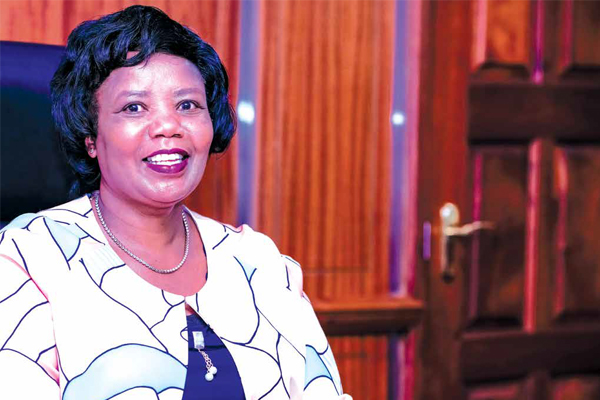DR HANNINGTONE GAYA PhD EBS
In a bold move by President Kenyatta, the government reduced the corporate tax by 5%, value added tax (VAT) by 2%, prompt payments of bills within three weeks and refunds of all audited VAT refunds to the tune of 10 billion shillings.
These are, among a raft of financial interventions aimed at cushioning the private sector from the expected ravaging of these businesses by the novel coronavirus, SARS CoV-2 that is believed to cause COVID 19.
Prior to these far reaching cushions, the Central Bank of Kenya, through its governor, Dr. Patrick Njoroge, and the monetary policy committee MPC) reduced the cash reserve ratio by 1 % of deposits held by banks to release liquidity for the banks, in a bid to free more funds to the banks to cushion the sector from the economic shock already being felt by the industry as it gears itself to offer relief to the already constrained customer base.

Following the reduction in corporate and value added taxes represent tax payers money, it should be expected that large businesses that have been chalking up billions in profits, ought also to extend these business mercies, by immediately coming to rescue the Micro, small and medium enterprises (MSMEs) through a number of initiatives, tools and frameworks, foremost of which ought to be prompt payments of overdue invoices.
Already, the banking sector directly and indirectly through their agency platforms like the e-wallet, have commenced cushioning Kenyans from the impact of the novel coronavirus on some of the most vulnerable sectors of the society. In addition to daily messaging on the social behaviour to take to flatten the curve, the banking industry is daily enhancing mobile money transfer through a number of interventions.
The most notable of these are the removing of charges for all mobile money transfer of less than shillings 1,000 and the expansion on a single transaction limits from 70,000 to 150000, daily limit of transactions increased to 300,000 from 150,000 and the monthly limit of 1 million removed altogether.
The banks have implemented a seamless E-wallet movement transaction by removing all charges. In addition, the industry has undertaken to extend relief on all current personal loans in the books (representing 28%) of the banking loan book, as on March 2 2020, where the individuals encounter repayment hardships such as poorly performing personal venture, or loss of employment or illness arising out of the effects of the novel coronavirus, leading to no cashflow to service the personal loans.
Share article on:
Regarding the SMEs, the businesses have a window to approach the banks directly for analysis, after which depending on the merits of the case, have the loan repayment restructured, the costs of the restructuring being bone by the respective bank, as these are non-personal loans. The banks have also waved the charges on bank balance inquiries.
Following on the concessions by the banking industry, the other large firms ought also to extend some cushions to the customers, the employees and their suppliers and contractors.
The first of the line is to retain existing business flow to these firms as long as it remains economically and socially prudent to do so. For such firms to immediately freeze business and delay payments for services and goods already supplied, using the effects on the novel coronavirus as the reason for the decision while benefitting from the taxpayer’s money by way of reduced taxation, ought to be seen for what they are; acts of bad faith.
Such acts also fly in the face of the Social Development Goals (SDGs) and Business Sustainability concepts that these large organisations always and publicly flaunt to subscribe to.
No firm, however profitable at the moment, can sustainably have a stable market in an environment of unemployment, underemployment, acute poverty and famine among the majority of the populace. In the same vein, the very profitable firms ought to voluntarily have the moral sense of retaining jobs and at worst case scenario, negotiating salary reductions than sending employees home, due to a health pandemic as the kind pertaining.
Financial concessions, continued business flow, prompt payment and the retention of jobs are the bare minimums expected of any socially responsible corporate citizen. Anything else is but a corporate responsibility (CR) if business has to rescue its current and future markets from total obliteration.
Subscribe to our newsletter
Don't miss new updates on your email
It is well documented by numerous studies that the MSMEs are the engines of growth, in fact the tributaries that plugs onto the large firms to increase the size and by themselves create more than 85% of new jobs every year. They also keep a similar percentage of citizens in gainful employment.
The motto should be businesses supporting the smaller businesses, employees and communities they operate in, while the government puts in place support structures through fiscal and monetary instruments to facilitate and support businesses.
As the global economy continue to halt into recession due to the pandemic, only by coming to the rescue of MSMEs and protecting jobs now will Kenya and these big businesses make any recovery after we conquer, as a people and a country, the effects of the novel coronavirus (SARS CoV 2) and the resultant COVID-19 disease.

















